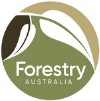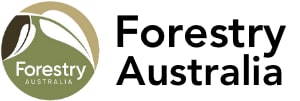
MEDIA RELEASE
Tuesday 22 August 2023
Forestry – The science & craft
With Australia’s forests facing a challenging future, Forestry Australia, the professional association for forest scientists, managers and growers, has used National Forestry Day to highlight the need for our forests to continue to be professionally managed.
Forestry Australia President, Dr Michelle Freeman said that with multiple and overlapping decisions and processes happening across local, State and Federal levels, the future of Australia’s forests is now once again under the microscope.
“Australia’s forests face a challenging future. While climate change may improve forests in some areas, elsewhere they will wither in drought. Bushfires will increase in size, severity and frequency,” Dr Freeman said.
“All the while demands on our forests – for recreation, resources, and tourism – will continue to increase.
Dr Freeman said that decisions regarding stewardship and management of forests will ultimately determine their future health and capacity to recover from the many challenges they face.
“People who work in forestry are concerned about what will happen if we don’t use and manage our forests appropriately,” Dr Freeman said.
“As the sixth most forested country in the world, Australia’s forest scientists know we have both a moral and ethical responsibility, not just to our own forests, but to the world’s forests – it is forestry that provides us with the tools we will need to meet that responsibility.
“Forestry is the science and craft of creating, managing, conserving, using and caring for forests.
“It is both a science and a craft to measure and balance competing demands in our forests, and it is an immense challenge.
“Science – because there is knowledge and learning that underpins forestry based on observation, measurement and analysis.
“Craft – because there is a skill and artform needed that requires us to read, connect with and understand forests in ways that include, but can’t always be described, by western science alone.
“Forestry does something that many other scientific fields forget to do – it puts people in the centre. It considers how we live in, conserve, interact with and use our environment.
“Forestry recognises that people need many different things from forests – including peace of mind, recreation, and conservation – but also wood, food and water.
Dr Freeman said forest scientists seek to integrate outcomes for forests and for people by finding ways to grow more trees in the landscape whilst respecting other needs, like agriculture and protecting river catchments for clean water downstream.
“We also seek to rehabilitate forests and restore damaged ecosystems, increase carbon storage within our landscapes; improve biodiversity outcomes, responsibly meet the needs of our society for timber and forest products and work alongside Traditional Owners, the original stewards of the forests.
“With forestry we can make sure that we have forests for people and people with the science and curiosity to care for forests, now and into the future,” Dr Freeman said.
ENDS
Media contact:
Becher Townshend
Font PR
0418 370 661

